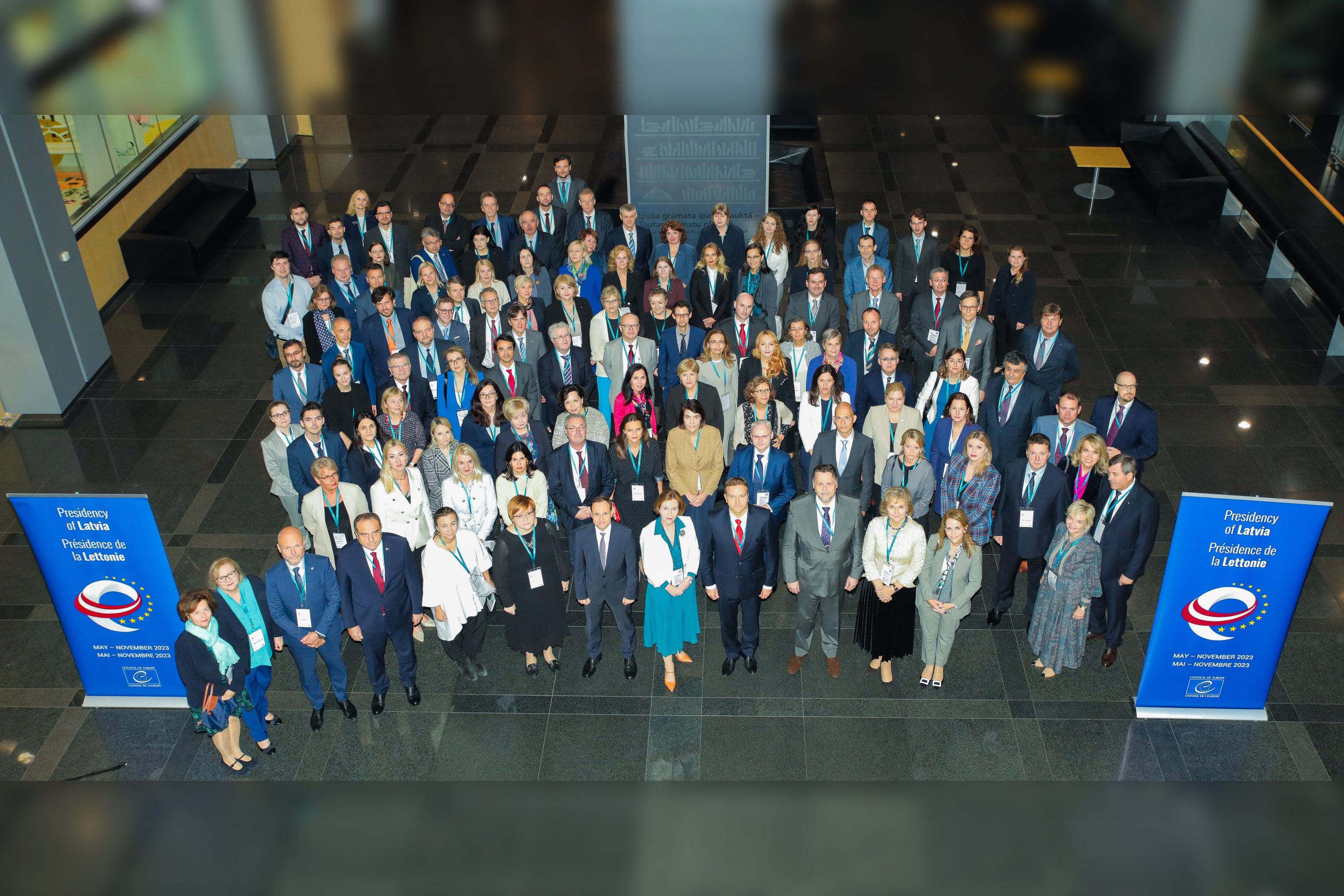Execution of Judgements of the European Court of Human Rights shapes the common European identity
On 21 September of the current year, the Constitutional Court and the Supreme Court, in the framework of Latvia’s Presidency of the Committee of Ministers of the Council of Europe, held the international conference “The Role of the Judiciary in Execution of Judgements of the European Court of Human Rights (ECtHR)” to strengthen the dialogue between European courts and the shared values in the European legal area.
In his opening address at the Conference, President of the Constitutional Court Aldis Laviņš underscored that effective execution of judgements is an inalienable part of the right to a fair trial, which is common for the entire Europe: “Our responsibility is to ensure execution of court rulings because, in the absence of it, the right to a fair trial might become merely apparent and lose its meaning. Failure to enforce rulings may jeopardize the democratic order and lead to authoritarian, totalitarian and, successively, also to internationally aggressive regimes. Undemocratic yet rule-of-law governed states is a utopia and the so-called “good dictatorships” do not exist.”
President of the Supreme Court Aigars Strupišs, in turn, noted in his opening address that “although national courts are in a united legal system with the European Court of Human Rights”, however, “it should not be forgotten that, currently, we live in circumstances of active hybrid war, the waging of which our aggressive neighbour, i.e., Russia, is constantly taking care of. Society of Eastern Europe is more aware of the objective threat and the need to defend itself compared to West Europeans who do not have to face these threats on a daily basis. This, of course, does not lower the human rights standards but demands from courts differential approach to risk assessment in the context of national security.”
In the keynote speech on the importance of execution of ECtHR’s judgements in ensuring the rule of law in Europe, President of the European Court of Human Rights Síofra O’Leary underscored “I stand before you today as the President of the Court which currently has some 78 000 pending applications, 80% of which are repetitive cases or cases in relation to which the case-law is well-established. Tackling this problem is critical not only for the sake of individual applicants but also for the long-term survival of the Convention system, and its ability to tackle the many grave and new challenges to respect for human rights, democracy and the rule of law emerging in our societies.”
Further, Judge of the Court of Justice of the European Union Ineta Ziemele outlined the importance of the core of national constitutional identities in the execution of ECtHR’s judgements: “From a constitutional law perspective execution of judgments is a crucial element of rule of law. It gives meaning to the principle of separation of powers. If the government was allowed not to execute judgments of the courts, including European courts, that would infringe the very idea of checks and balances. Such practice greatly undermines democracy and is a sign towards its backsliding.”
Registrar of the European Court of Human Rights Marialena Tsirli spoke about the institutional dialogue between the European Court of Human Rights, the Committee of Ministers and the national courts in executing the Court’s judgements: “Full execution of the Court’s judgments is not just important for the applicant in a given case, nor for the Court’s backlog, but also for the credibility of the whole Convention system. The duty to execute judgments does not just fall upon one actor – the executive. Other branches of the State have important roles to play, such as judicial stakeholders, and should see themselves as powerful actors in the process.”
The introductory part of the Conference was followed by two break-out sessions. The first of them focused on the significance of res judicata principle in reopening of proceedings after ECtHR judgements. Senator of the Supreme Court of the Republic of Latvia Jānis Pleps, discussing the supervision of execution of ECtHR’s judgements, emphasised that “the final judgement of the European Court of Human Rights is binding upon the State, and it must execute it in good faith. If we expect respect for a court’s ruling that has entered into force, the State itself should take the lead.”
Whereas Judge of the European Court of Human Rights Mārtiņš Mits continued the discussion by admitting that “while the Court engages in the balancing exercise to ensure the protection of the Convention rights without intervening unreasonably into the domestic legal systems, the domestic highest courts engage in the balancing exercise to follow the Convention standards and at the same time to respect the competencies of the state powers, notably, of the legislature.”
The second break-out session was dedicated to the supervision of execution of judgements of ECtHR, in particular, to the issue whether the national constitutional identity may be obstacle to execution. Justice of the Constitutional Court Artūrs Kučs, in discussion on the interaction between judgements by ECtHR and the national constitutional identity, reminded that “pursuant to Article 27 of the Vienna Convention on the Law of Treaties, the national law may not be invoked to justify a State’s failure to meet its international obligations. However, looking from the perspective of a justice of the Constitutional Court, the role of the Constitutional Court is to safeguard the Constitution, the constitutional identity, and the Constitutional Court may not decide against the core of the Constitution, even where that would be related to the execution of the ECtHR’s ruling.”
At the conclusion of the Conference President of the Constitutional Court Aldis Laviņš noted: “In guaranteeing the right to a fair trial, it is not always possible to execute rulings in accordance with a standardized and accurate instruction. It is a major challenge – to achieve concerted actions in execution of judgements, involving increasingly more significant cases. The possible solutions, in turn, are politically and legally complex and require a systemic approach. Therefore, also in the execution of court rulings, on the basis of mutual respect and loyalty, dialogue between the involved parties is necessary. It is important that the national court, in looking for the most appropriate solution in the case under review, sees the wider context, i.e., whether the legislator has developed legal regulation dynamically in compliance with, inter alia, those findings that the European Court of Human Rights has expressed in cases against other states, and considers how these findings should be applied in the legal system of all states.
Recording of the Conference in Latvian, English and French is available on YouTube channels of the Constitutional Court and the Supreme Court.
More extensive information about the Conference, its programme and participants is available on the homepage of the Constitutional Court and the homepage of the Supreme Court.





